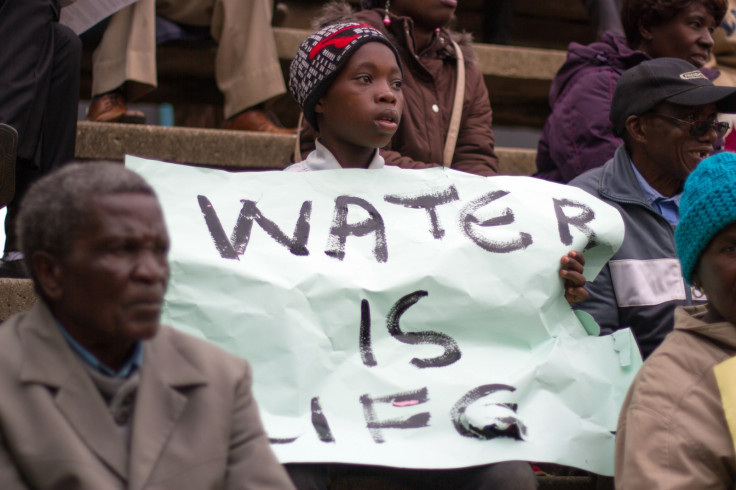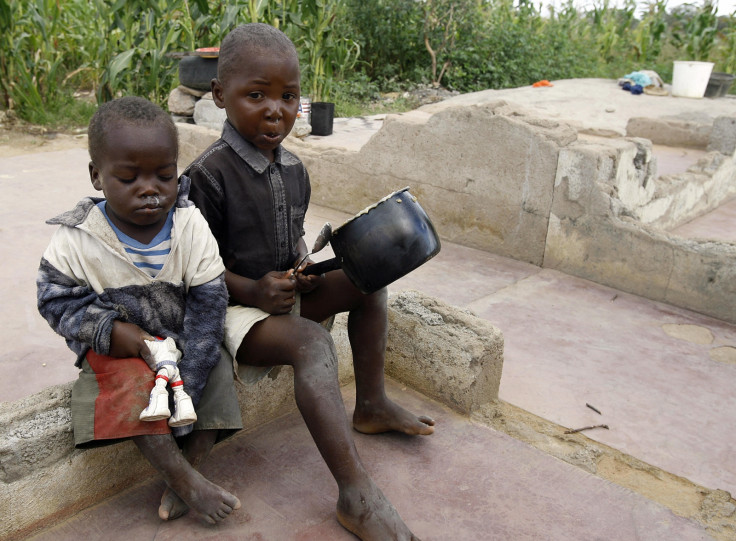Zimbabwe minister fears cholera outbreak in 'one of the dirtiest countries' in Africa
Environment minister Muchinguri-Kashiri claims 'reckless' policies could lead to deadly illness outbreaks.

Zimbabwe's environment minister Oppah Muchinguri-Kashiri has claimed Zimbabwe is one of the dirtiest countries in the region after the nation's health authorities issued a cholera and typhoid outbreak alert in the capital Harare, due to severe water shortages.
Large parts of Harare are now restricted to running water two days a week, and residents in both urban and rural areas have turned to potentially-contaminated sources of water for everyday use. Zimbabwean President Robert Mugabe declared a state of disaster earlier in 2016.
According to the government, at least one in five Zimbabwean is food-insecure due to the drought, which has so far also killed thousands of livestock in the nation once dubbed the breadbasket of southern Africa.
Combined with the nation's crumbling economy and ailing water supply infrastructure, the worse drought since 1991/1992 has sparked fears of an outbreak of deadly diseases such as cholera.
Zimbabweans are still reeling from the economic and humanitarian crisis of 2008/2009 when more than 4,280 died from cholera, an outbreak UNICEF has described as one of the worse ever recorded in sub-Saharan Africa.
At least 60 confirmed cases of cholera in Harare
"We are very concerned about the severe water shortage throughout the country, both in urban and rural areas. People are resorting to using very scarce resources such as shallow wells – some of it is muddy water and one can just imagine what sort of organisms can be found in there," health minister David Parirenyatwa was quoted as saying by Anadolu news agency. "Our worry is that if flash rains come this is what causes diarrheal diseases such cholera, dysentery and typhoid."
Parirenyatwa said that at least 60 cases of cholera had been confirmed in Harare, according to the state-run Herald newspaper.
While the agency reported that some wealthy residents have turned to so-called water poachers, who supply people with an illegal, reliable supply of clean water for up to $100 (£81, €91), Muchinguri-Kashiri said that the situation across the country was deplorable.
Addressing a press conference in Harare over the weekend, the environment minister said the government was considering extending the water shortage area to the whole country. She said: "Something has gone wrong with us Zimbabweans. Zimbabweans are living dangerously. We cannot live luxuriously like this and forget that we are humans."
Referring to a lack of planning and poor conservation of trees in farmlands and rural areas as well as the large-scale use of raw sewage, Muchinguri-Kashiri said: "We have become reckless as a nation. Why are we so irresponsible? We need those trees. The whole country is filthy and no one dares to correct the situation."
Widespread deforestation means that soil becomes eroded, polluted and unable to hold water – provoking desertification and drought. Germs and diseases, meanwhile, can easily be spread from sewage if it is not disposed of properly.
In May, Zimbabwe said it was offering to sell off some of its wild animals and use the income to help save remaining wildlife struggling in the devastating drought.

© Copyright IBTimes 2024. All rights reserved.









